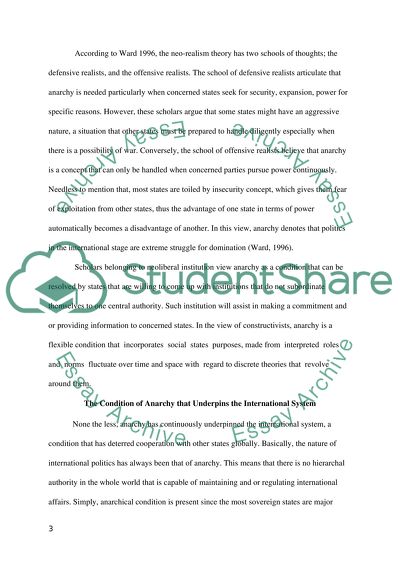Cite this document
(“Anarchy in the International System Essay Example | Topics and Well Written Essays - 1500 words”, n.d.)
Retrieved from https://studentshare.org/sociology/1472165-anarchy-in-the-international-system
Retrieved from https://studentshare.org/sociology/1472165-anarchy-in-the-international-system
(Anarchy in the International System Essay Example | Topics and Well Written Essays - 1500 Words)
https://studentshare.org/sociology/1472165-anarchy-in-the-international-system.
https://studentshare.org/sociology/1472165-anarchy-in-the-international-system.
“Anarchy in the International System Essay Example | Topics and Well Written Essays - 1500 Words”, n.d. https://studentshare.org/sociology/1472165-anarchy-in-the-international-system.


